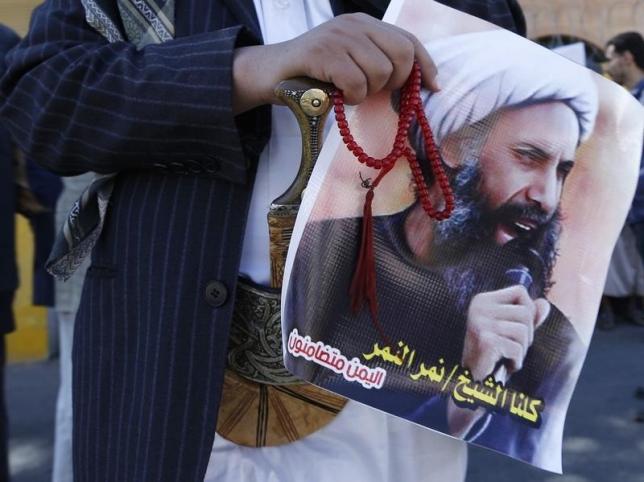Tensions between Saudi Arabia and Iran have reaching boiling point after the Kingdom severed all diplomatic ties with its gulf rival, following a series of events spurred by the execution of Iranian cleric, Nimr al-Nimr. The shia preacher, who was arrested and convicted on charges including attempting to incite political unrest, was executed on the 2nd January alongside 46 other convicted ‘terrorists’.
His death was met with retaliation in Iran, with protesters ransacking and setting alight the Saudi Embassy in Tehran. In response, the Kingdom opted to cut all diplomatic ties with the shia-led state. Iran has since accused Saudi Arabia of using the embassy attack as a pretext for diverting attention from al-Nimr’s execution.
Despite criticism over what is seen as an “erratic” move by the Saudis, Joseph A. Kéchichian, a senior fellow at the King Faisal Centre in Riyadh, described the Kingdom’s response as “quite measured”, especially considering Iran’s reputation of attacking diplomatic outposts within its borders.
In 1979, 52 Americans at the U.S. Embassy in Tehran were taken hostage for 444 days by protesting students, while in 2011 protesters attacked and set alight a building at the British Embassy in the Iranian capital, spurring the UK government to shut the embassy and temporarily cut diplomatic ties with Iran.
“This is just the latest episode. It is unacceptable under international law to vent one’s anger by ransacking diplomatic outposts.
That is not acceptable wherever you are in the world; there are international penalties to pay for that,” Kéchichian stated.
He further labelled Saudi Arabia’s response as “one step short of going to war”, describing the ensuing few months, or potentially years as a necessary cooling off period.
“I don’t know how long this is going to last but we are going to have no diplomatic relations between the two countries for the foreseeable future. This is not the first time this has happened, but hopefully it’ll be the last,” he said.
The move is expected to have far reaching consequences for an already volatile region, The Middle East being the centre of a power struggle between the two regional heavyweights.
Kéchichian said that despite their differences, the two states would need to try and coexist with one another in spite of the dispute.
“The struggle is both political and to a certain extent sectarian as well. Iran has attempted during the past three or four decades, after the 1979 Islamic Revolution, to essentially project power throughout the Arab world.
“The Arab countries, led by Saudi Arabia, are very much opposed to this kind of interference in their internal affairs. Therefore, periodically you have these kinds of clashes,” he explained.
The tensions could also affect peace talks with regards to the conflicts in Syria and Yemen, with both countries sitting on opposite sides of opinion on both issues. Kéchichian suspected the respective talks would suffer as a result.
“The peace talks will not accomplish a lot of the objectives people thought it would, simply because the two parties will not be talking with one another. This does not mean that negotiations will not go through, but it will be more difficult. The international community will have to play a tougher role by putting pressure on both sides to come to terms,” he suspected.
Three neighbouring allies of Saudi Arabia, namely Bahrain, Sudan and the U.A.E have also cut ties with Iran. VOC (Mubeen Banderker)






 WhatsApp us
WhatsApp us 

